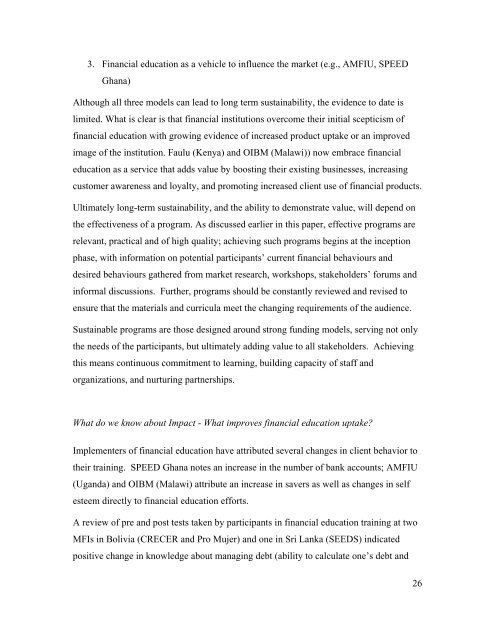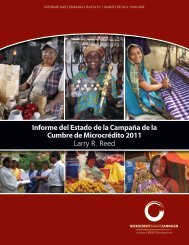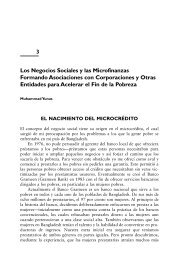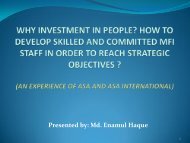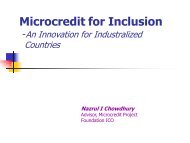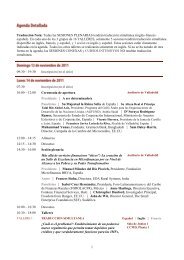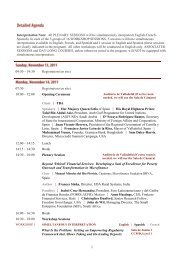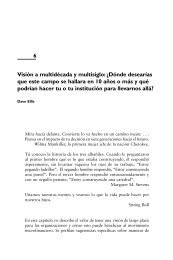Financial Literacy: A Step for Clients towards Financial Inclusion
Financial Literacy: A Step for Clients towards Financial Inclusion
Financial Literacy: A Step for Clients towards Financial Inclusion
Create successful ePaper yourself
Turn your PDF publications into a flip-book with our unique Google optimized e-Paper software.
3. <strong>Financial</strong> education as a vehicle to influence the market (e.g., AMFIU, SPEED<br />
Ghana)<br />
Although all three models can lead to long term sustainability, the evidence to date is<br />
limited. What is clear is that financial institutions overcome their initial scepticism of<br />
financial education with growing evidence of increased product uptake or an improved<br />
image of the institution. Faulu (Kenya) and OIBM (Malawi)) now embrace financial<br />
education as a service that adds value by boosting their existing businesses, increasing<br />
customer awareness and loyalty, and promoting increased client use of financial products.<br />
Ultimately long-term sustainability, and the ability to demonstrate value, will depend on<br />
the effectiveness of a program. As discussed earlier in this paper, effective programs are<br />
relevant, practical and of high quality; achieving such programs begins at the inception<br />
phase, with in<strong>for</strong>mation on potential participants’ current financial behaviours and<br />
desired behaviours gathered from market research, workshops, stakeholders’ <strong>for</strong>ums and<br />
in<strong>for</strong>mal discussions. Further, programs should be constantly reviewed and revised to<br />
ensure that the materials and curricula meet the changing requirements of the audience.<br />
Sustainable programs are those designed around strong funding models, serving not only<br />
the needs of the participants, but ultimately adding value to all stakeholders. Achieving<br />
this means continuous commitment to learning, building capacity of staff and<br />
organizations, and nurturing partnerships.<br />
What do we know about Impact - What improves financial education uptake?<br />
Implementers of financial education have attributed several changes in client behavior to<br />
their training. SPEED Ghana notes an increase in the number of bank accounts; AMFIU<br />
(Uganda) and OIBM (Malawi) attribute an increase in savers as well as changes in self<br />
esteem directly to financial education ef<strong>for</strong>ts.<br />
A review of pre and post tests taken by participants in financial education training at two<br />
MFIs in Bolivia (CRECER and Pro Mujer) and one in Sri Lanka (SEEDS) indicated<br />
positive change in knowledge about managing debt (ability to calculate one’s debt and<br />
26


